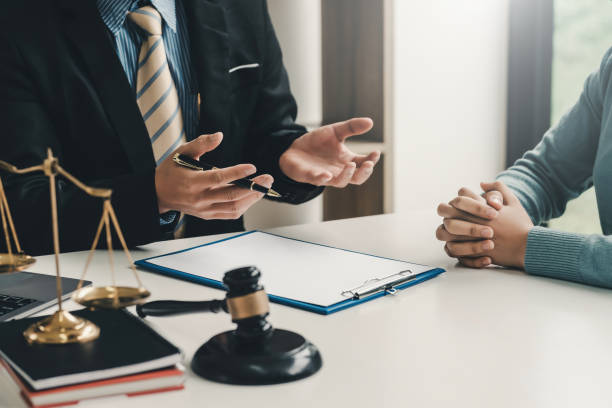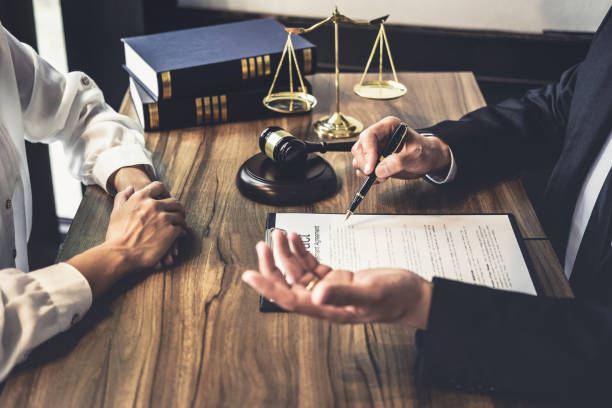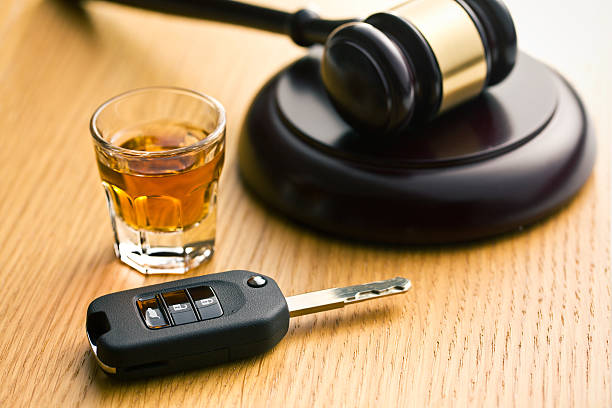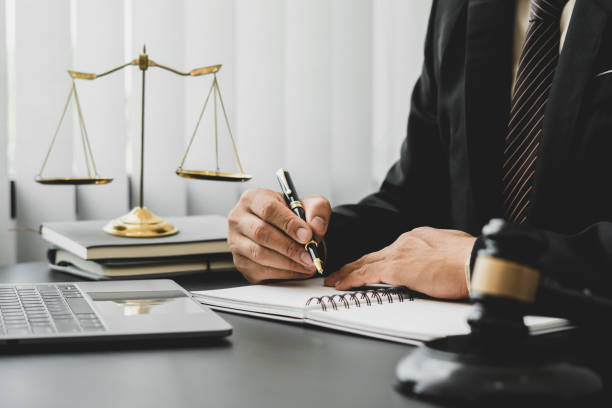
Recent substantial changes have been made to New York State’s DWI (Driving While Intoxicated) regulations and the driver violation point system, marking the most significant overhaul in decades, effective at the end of 2024 and the beginning of 2025. These updates are intended to improve road safety by increasing accountability for high-risk and repeat offenders.
Navigating the complexities of DWI charges in New York requires a nuanced understanding of the law and a dedicated legal advocate. Our Rochester DWI lawyer provides comprehensive guidance and aggressive legal strategies to protect your rights and driving privileges. With a focus on staying abreast of the latest legal updates and case precedents, our DWI lawyer offers unparalleled expertise in New York DWI law. This blog will present a structured summary of the new rules, including stricter penalties for DWI/DWAI offenses.
Understanding DWI and DWAI in New York: Key Differences
Driving while intoxicated (DWI) and driving while ability impaired (DWAI) are distinct offenses in New York, each with its own legal implications. While both involve operating a motor vehicle under the influence of alcohol or drugs, the severity of the charges hinges on the level of impairment and the specific circumstances surrounding your arrest.
Misconceptions about these offenses are common, which is why seeking legal counsel from a DWI lawyer is vital. An experienced DWI lawyer can provide clarity and help determine the best course of action based on the specifics of your case.

Definition of New York DWI and DWAI in 2025
In New York State, DWI charges demonstrate a greater degree of impairment than DWAI offenses. A DWI charge typically involves a blood alcohol content (BAC) of .08% or higher or evidence of intoxication from drugs. This offense is treated more severely under the law due to the heightened risk it poses to public safety.
Conversely, a DWAI offense indicates a lesser degree of impairment but still signifies an inability to operate a vehicle safely. DWAI charges can stem from a BAC between .05% and .07%, or if your ability to operate a vehicle is demonstrably impaired by any amount of drugs.
Understanding the legal nuances of a DWI case in New York is crucial, as even a first-time offense can have significant and lasting consequences on your driving record, employment, and future.
Legal Thresholds for DWI vs. DWAI
The primary difference between a DWI and DWAI charge often lies in the blood alcohol content (BAC) registered during a breathalyzer test. For individuals 21 years or older, a BAC of .08% or higher constitutes a DWI, while a BAC between .05% and .07% may result in a DWAI charge, depending on other factors.
It’s important to note that the influence of drugs, both legal and illegal, can also lead to DWI or DWAI charges. Law enforcement officers will often use field sobriety testing in conjunction with, or in the absence of, a chemical test to assess impairment due to drug use.
Even if your BAC is below the legal limit, you can still be arrested and charged with DWAI if the officer has reason to believe your ability to operate a vehicle is impaired by drugs.

DWI Tests and Requirements
DWI test results and requirements in New York are critical elements in the assessment of a driver’s sobriety and the enforcement of DWI laws. When a driver is pulled over under suspicion of impaired driving, law enforcement officers have a series of standardized procedures to follow. Typically, this includes field sobriety tests as an initial evaluation of impairment. These tests, which may involve tasks like walking a straight line or standing on one leg, are designed to gauge the driver’s physical coordination and cognitive function. If the officer deems the driver impaired, they may then request a chemical test, which can be a breath, blood, or urine test, to determine the blood alcohol concentration (BAC) or the presence of drugs. It’s important to note that in New York, all drivers operating a vehicle are deemed to have given implied consent to these chemical tests. Failing to comply with such requests can result in automatic penalties, including a driver’s license suspension. Understanding these tests and requirements is essential for anyone facing potential DWI charges, as they play a significant role in the legal process and can influence the outcome of a case significantly.

Harsher Penalties for DWI/DWAI Offenses in New York
The impaired drunk driving laws in New York cover various offenses, including DWI (Driving While Intoxicated), Aggravated DWI, DWAI-Drug (Driving While Ability Impaired by a Drug), DWAI-Combination (Alcohol/Drugs), and DWAI-Alcohol (Driving While Ability Impaired by Alcohol, which is considered a lesser offense). While recent regulatory changes have not modified the fundamental statutory definitions or criminal penalties associated with these offenses, they have increased the serious consequences via the Department of Motor Vehicles (DMV) administrative actions and refined enforcement policies. This section discusses the current penalties and emphasizes the recent updates.
Criminal Penalties for Impaired Driving Offenses in New York
New York imposes a tiered structure of fines, jail sentences, and other criminal penalties depending on the offense and the driver’s record. The table below summarizes the core criminal penalties for DWAI and DWI convictions:
Offense | Criminal Classification | Mandatory Fine | Maximum Jail Time Term | Mandatory License Action |
DWAI (Alcohol), 1st offense | Traffic Infraction (VTL 1192(1)) | $300–$500 | 15 days | 90-day Suspension of license |
DWI (Alcohol or Drug), 1st offense | Misdemeanor (VTL 1192(2),(3),(4)) | $500–$1,000 | 1 year | 6-month Revocation of license |
Aggravated DWI (.18+ BAC), 1st | Misdemeanor (VTL 1192(2-a)) | $1,000–$2,500 | 1 year | 1-year Revocation of license |
Second DWI/DWAI-Drug (within 10 yrs) | Class E Felony (VTL 1193(1)(c)) | $1,000–$5,000 | 4 years | 1-year Revocation (minimum) |
Third DWI/DWAI-Drug (within 10 yrs) | Class D Felony | $2,000–$10,000 | 7 years | 1-year Revocation (minimum) |
DWAI-Drug or DWAI-Combination, 1st | Misdemeanor (VTL 1192(4),(4-a)) | $500–$1,000 | 1 year | 6-month Revocation of license |
DWAI-Combination, 2nd (within 10 yrs) | Class E Felony | $1,000–$5,000 | 4 years | 1-year Revocation (minimum) |
Aggravated DWI (Child in Car), 1st | Class E Felony | $1,000–$5,000 | up to 4 years | 1-year Revocation of license |
Role of a Rochester DWI Lawyer
Given the complexities of DWI/DWAI law, a qualified DWI lawyer in Rochester, NY, plays a vital role in safeguarding your rights. From understanding the nuances of the updated penalties to devising a robust defense strategy, their expertise is essential throughout the legal proceedings.
Whether challenging the validity of field sobriety tests, negotiating plea agreements, or representing you in court, our skilled Rochester DWI lawyer can make a significant difference in the outcome of your case.

Importance of a Rochester DWI Attorney
A Rochester DWI attorney that has many years of experience in criminal defense brings invaluable knowledge and skill to your DWI offense case. They understand the intricacies of DWI law, court procedures and can identify potential weaknesses in the prosecution’s case.
A DWI/DUI defense lawyer is adept at constructing an effective defense strategy tailored to the specifics of your situation. This might involve challenging the legality of the traffic stop, questioning the accuracy of field sobriety or breathalyzer tests, or presenting mitigating factors to the court.
Their objective is to achieve the best possible outcome for you, whether it’s getting the charges reduced, dismissed, or negotiating a plea agreement that minimizes the impact on your life.
How Criminal Defense Attorney Raymond Sciarrino Can Assist in DWI/DWAI Cases
Rochester criminal defense attorney Raymond Sciarrino has decades of experience in criminal law and DWI law. He possesses a comprehensive understanding of the local legal landscape. He has a proven track record of successfully defending clients against DWI/DWAI charges.
Our criminal defense lawyer works closely with our clients, carefully analyzing the evidence and devising a comprehensive DWI defense strategy tailored to their unique circumstances. He understands that each case presents distinct challenges and tailors his approach to ensure the most favorable outcome.
DWI attorney Raymond Sciarrino offers a free consultation to discuss your case, answer your questions, and guide you through your legal options.

DWI Arrest Process
The DWI arrest process in Rochester, NY, typically begins with a traffic stop. If the police officer suspects impairment due to alcohol or drugs, they might conduct field sobriety tests and, if necessary, request a urine, breath, or blood test.
Understanding your rights throughout this process is imperative. Refusing to comply with certain requests, such as a breathalyzer test, can have separate legal consequences, despite your guilt or innocence of the initial DWI charge.

Steps to Expect During a DWI Stop
During a DWI stop in New York, a police officer will typically ask for your driver’s license, registration, and proof of insurance. They will observe your behavior, looking for signs of impairment like bloodshot eyes, slurred speech, or the smell of alcohol.
The officer may ask you to step out of the vehicle to perform field sobriety tests, such as walking in a straight line or balancing on one leg. These tests are designed to assess your physical and cognitive abilities and determine if they are impaired.
Based on their observations and the outcome of the field sobriety tests, the officer may then request a breath test using a breathalyzer device or request a blood or urine test to determine your blood alcohol concentration (BAC) or the presence of drugs.
Rights During a DWI Arrest in New York
It is important to remember your rights if you are arrested for DWI in New York. You have the right to remain silent, meaning you do not have to answer an officer’s questions beyond providing basic information. Anything you say can be used against you in court.
You have the right to legal representation. You can, and should, request to speak with a DWI attorney before answering any further questions or consenting to any tests. An experienced DWI attorney can protect your rights and ensure law enforcement follows proper procedures.
Remember, exercising these rights is not an admission of guilt. It simply ensures you are treated fairly under the law and have the best possible chance of a positive outcome in your case.


Importance of Hiring a Skilled New York DWI Lawyer
Hiring a skilled New York DWI lawyer is essential for anyone facing DWI charges. They bring a deep understanding of New York’s complex DWI laws and procedures and will work tirelessly to fight for your rights and interests.
Our DWI defense attorney will carefully examine every aspect of your case, including the circumstances of your arrest, the evidence against you, and any procedural errors that may have occurred. They use this information to build the strongest possible defense on your behalf.
Their goal is to secure the best possible result for you. Whether minimizing penalties, negotiating a plea deal, or pursuing a full dismissal of the charges, our skilled Rochester DWI lawyer can make a significant difference in the outcome of your case.
Frequently Asked Questions
Can DWI/DUI charges be reduced in Rochester, NY?
Yes, our skilled DWI defense lawyer in Rochester, NY, can explore possibilities for reducing DWI charges. This might involve negotiating plea agreements with the prosecution or challenging the evidence to secure a more favorable outcome. Our criminal attorney’s goal is always to get a reduction of charges or have the charges dismissed altogether.
What are the implications of refusing a breathalyzer?
Refusing a breathalyzer test in New York carries significant legal consequences, including an automatic driver’s license suspension, even if you are ultimately not convicted of the DWI arrest. New York law considers refusal an admission of guilt, leading to separate penalties from the DWI charge.
Are You Searching for a "DWI Lawyer Near Me?" Contact Us for a Free Consultation!
Facing a DWI charge in New York can be a daunting and stressful experience. If you’re searching for a “DWI lawyer near me,” look no further! Our dedicated DWI lawyer and criminal defense law firm is here to provide the legal counsel and aggressive representation you need during this challenging time.
Our Rochester DWI lawyer offers a free consultation to discuss the specifics of your case, answer your questions, and develop a personalized legal strategy tailored to your needs. Don’t let a DWI charge define your future — contact our DWI lawyer and take the first step toward protecting your rights.

